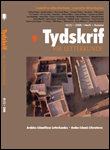Reconciling Arabo-Islamic culture and feminist consciousness in North African women’s writing: Silence and voice in the short stories of Alifa Rifaat and Assia Djebar
DOI :
https://doi.org/10.17159/2309-9070/tvl.v.45i1.4459Mots-clés :
Alifa Rifaat, Assia Djebar, Islam, women, short story, feminismRésumé
This article sets out to explore the theme of silence and voice in selected short stories by two North African women writers, Alifa Rifaat and Assia Djebar. In their representations of women’s lives in Egypt and Algeria, respectively, both Rifaat and Djebar present different strategies employed by women to counter gender oppression. Although the female characters portrayed by both writers encounter diverse, and sometimes opposing, circumstances, they tend to share a common plight – the need to break free from the constricting fetters of patriarchy. A comparative reading of selected stories reveals that Rifaat’s characters resort to silence as a means of self-preservation, while Djebar’s characters, on the other hand, use techniques ranging from writing to outright protest to show their rejection of gender-based segregation. In spite of this difference in approach, it can be said that both Rifaat and Djebar have made a great contribution to feminist literary creativity in North Africa.
Téléchargements
Téléchargements
Publiée
Numéro
Rubrique
Licence
(c) Copyright Tydskrif vir Letterkunde 2008

Ce travail est disponible sous licence Creative Commons Attribution - Partage dans les Mêmes Conditions 4.0 International.


 https://orcid.org/0000-0001-6465-6584
https://orcid.org/0000-0001-6465-6584


.png)